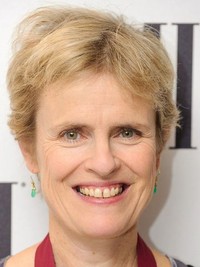Rachel Portman

One of a handful of contemporary female film composers, Rachel Portman created lush and colorful scores that enhance or reflect the emotions of the feature's characters. Using minimal cues for effect, she designed her work to appeal directly to the viewer's sensibilities. Equally at home scoring heavily dramatic motion pictures as well as light romantic comedies, Portman proved to be adept at compositions that reflect humanity. Raised in England, Portman began her musical education at an early age, trained to play a number of instruments. As she progressed, she became particularly interested in concentrating on composition and orchestrating, creating her first work as a teenager. After completing music studies at Oxford, she landed her first assignment to score the TV-movie "Experience Preferred ... But Not Essential" (1982; released theatrically in the USA in 1983) and entered films with Michael Hoffman's "Privileged" (1982). She subsequently alternated between TV and features, creating melodic scores that do not upstage the screen action. Portman forged a successful collaboration with Beeban Kidron on the feminist telefilms "Oranges Are Not the Only Fruit" (1989), "Antonia and Jane" (1990), and "Great Moments in Aviation" (1993). She subsequently created a jazz-tinged score for Kidron's "Used People" (1992) and the disco-tinged soundtrack for the director's "Too Wong Foo, Thanks for Everything, Julie Newmar" (1995). Critics praised Portman's score for "Where Angels Fear to Tread" (1991) and "Ethan Frome" (1993), both of which were instrumental in illustrating the frustrations and colors of the central characters. Her bouncy, lively score for "Benny & Joon" (1993) nearly functioned as a separate character in the film, while her quiet compositions for "The Joy Luck Club" (also 1993) highlighted that feature's sadness and tragedies as well as its occasional pleasures. Portman created the background music which reflected the changing moods of the characters in "Marvin's Room" (1996). She earned an Oscar for "Emma" (also 1996), which captured the mischievous qualities of the title heroine. That achievement made Portman the first female composer to win a music Academy Award. Constantly in demand, her scores over the next decade included Lasse Hallström's "The Cider House Rules" (1999) and "Chocolat" (2000), Jonathan Demme's remake of "The Manchurian Candidate" (2004), and time-shifting romantic comedy "The Lake House" (2006). Portman's facility for romantic scoring led to consistent work in love stories such as "The Vow" (2012). In 2015, she won an Emmy Award for her score for "Bessie" (HBO 2015), a biopic starring Queen Latifah as blues icon Bessie Smith.